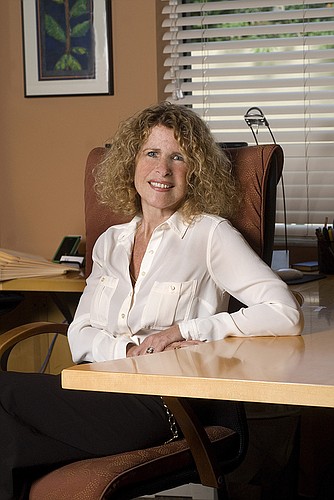Millennial homebuyers are a wary bunch.
You can't blame them. After all, millennials grew up during the recession when foreclosures were rampant and numerous banks failed.
But the leading edge of the millennial generation is having children or thinking about it. It's time to move out of the apartment and settle down.
In some ways, millennials are not much different from older generations. “They're looking for a yard for their kids and their pets and a secure garage where they can keep their car inside,” says Steve Seeger, director of marketing and sales for Lennar in Tampa.
But millennials do lots of research before they step into a sales center. “They ask for a floor plan by name and they have a good sense for what they're looking and for what they like,” Seeger says. “Millennials are very fast. They've grown up with the cell phone. They're checking stuff in real time while they're on their way to your communities.”
Despite the fact that they do a lot of homework online before they decide to buy a home, a majority of millennial buyers seek the counsel of Realtors and involve them in the decision. “It's a little counterintuitive,” Seeger says.
Just like older generations, millennials with children start thinking about education and look to the suburbs for good schools. “It's harder within the inner city to find the better schools,” says Dustin Holbrook, market intelligence manager with Pulte Group in Bonita Springs.
Misconceptions about financing and student-debt burdens sometimes hold back millennials who could afford to buy a home. “They have some mistrust of financial institutions. That came back in our research as well,” says Holbrook.
So Pulte, Lennar and others provide information about financing that dispels the notion that it's still difficult to obtain a mortgage. “We use the word 'easy' a lot,” says Seeger.
To do that, homebuilders are reaching millennials almost exclusively online on social media sites such as Facebook and Twitter and house-hunting websites such as Trulia and Zillow.
“We're trying to start a conversation and make friends,” says Seeger. “They don't want to be sold and sold and sold.”
At Ave Maria in Collier County, developer Barron Collier Cos. hired a full-time social media person to reach the millennial demographic. The company estimates 25% of its Facebook followers are millennials and 98% of all of its followers check Facebook every day. “We need to provide fresh content to them every single day, something relevant to them,” says Andrea McLendon, a marketing and media relations consultant for Barron Collier.
Ave Maria's outreach includes showing prospects what millennials do at the town in eastern Collier County by using images of young people exercising, practicing yoga and socializing.
One campaign showed young millennials playing with toddlers.
“The millennial market in Southwest Florida is now just coming into play,” says Robyn Bonaquist, founder and president of B2 Advertising in Naples, who helps homebuilders around the state reach new customers. “Most of my clients are putting a lot more effort in social media campaigns because that's where they get their news.”
Building industry associations are helping their members figure out millennials, too. For example, on April 29 the Tampa Bay Builders Association will hold a special general membership meeting devoted exclusively to the millennial market, says Jennifer Doerfel, executive vice president of the organization.
Social media and delivering useful, relevant information is the key because it establishes trust. “You have to get them to buy into you before they buy you,” Bonaquist says. “They won't fall for a line of BS. This is a generation that has seen everything: 9/11, Iraq. You have to be straight with them.”
Younger millennials without children have shown a preference toward a more urban lifestyle. For example, a proposed condo project called Longitude in downtown Bonita Springs with local shops on the ground floor has attracted interest from millennials, says Paul Benson, with developer EBL Partners. “They walk into our showroom with apps and show us what they want,” he says.
In some cases, parents of millennials are helping with the financing or even buying a second home for their millennial children to keep them close. “A lot of millennials come with their parents to the showroom,” says Benson.
Still, developing mixed-use projects can be a challenge because some communities on the Gulf Coast remain opposed to such projects. “The big problem we have and we're hearing is that zoning in both Manatee and Sarasota counties, and even in the cities, don't allow for densities that millennials desire,” says Jon Mast, CEO of the Manatee-Sarasota Building Industry Association.
Increased density makes housing more affordable, a key for cash-strapped millennials. “They're limited on what they can buy,” Mast says.






